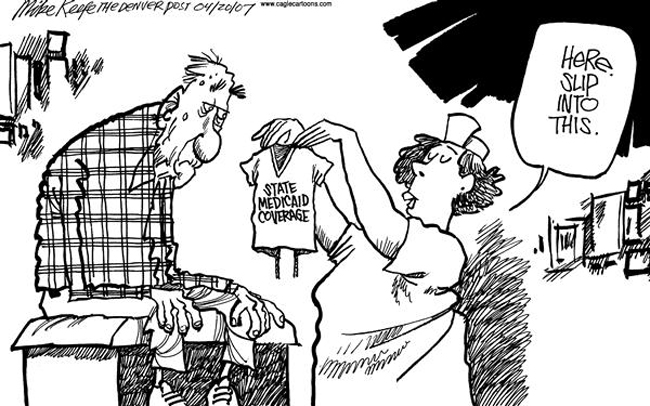 States face a tough choice right now, of whether to expand their Medicaid roles with 90% of the costs being borne by the government. (Medicaid is a combined Federal/State program to pay for healthcare of low income individuals and families.) Why is taking money from the Feds a tough decision?
States face a tough choice right now, of whether to expand their Medicaid roles with 90% of the costs being borne by the government. (Medicaid is a combined Federal/State program to pay for healthcare of low income individuals and families.) Why is taking money from the Feds a tough decision?
For starters, it means supporting, gulp, “Obamacare”. Republican governors who expand Medicaid, in accord with that law, will look like they are supporting that guy who so many of their supporters believe is a Kenyan socialist.
To make matters more complicated, many business interests (especially hospitals) are urging Republicans to support Medicaid expansion. Without this expansion, they know they will have fewer paying customers.
Politics and business aside, one other fact makes this a tough call: Even 10% of an expensive expansion is a lot of money. Here is an excerpt from a recent USA Today article, explaining the dilemma:
Though states could reap a large return from expanded Medicaid benefits, the extra costs are a challenge, said Michael Morrissey, a University of Alabama health care economist.
A recent study by Morrissey found that Medicaid expansion in Alabama would generate almost $20 billion in new income from 2014 to 2020 and $1.7 billion in extra taxes to local government. That assumed that 60% of the uninsured would get insurance. To get those benefits, Alabama taxpayers would have to come up with $771 million in new revenue to pay to administer the expansion, he said.
What do you think? Can States afford this? Should they find a way to afford this? Is it time, as I’ve urged before, to nationalize Medicaid?
(Click here to view comments)
